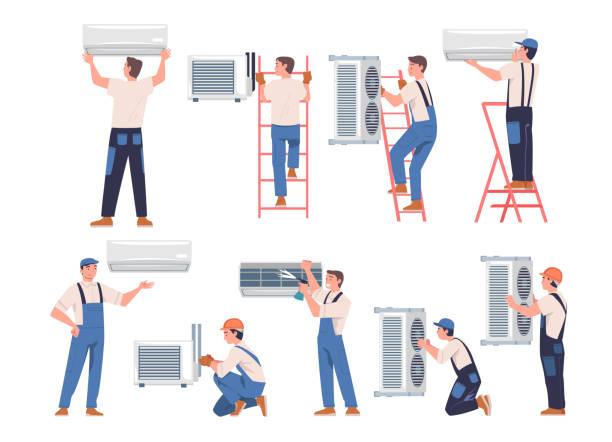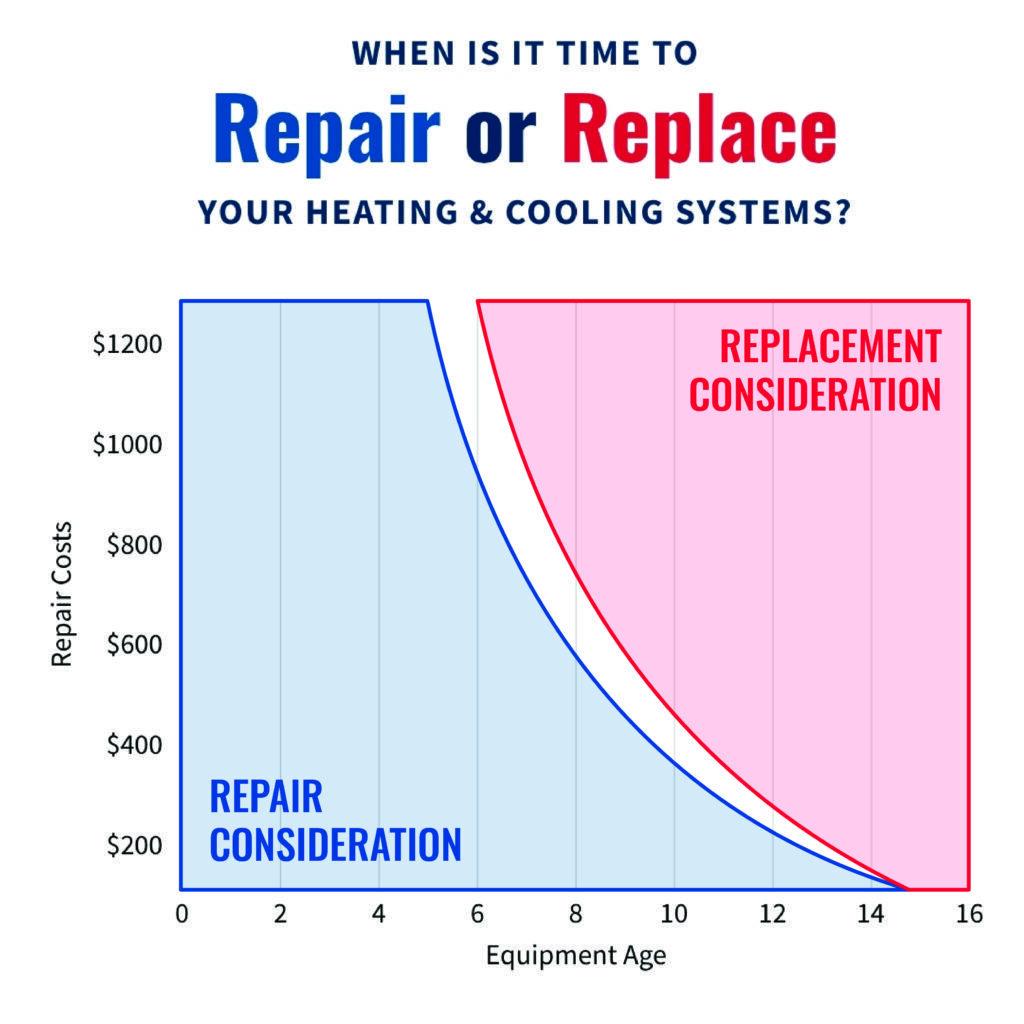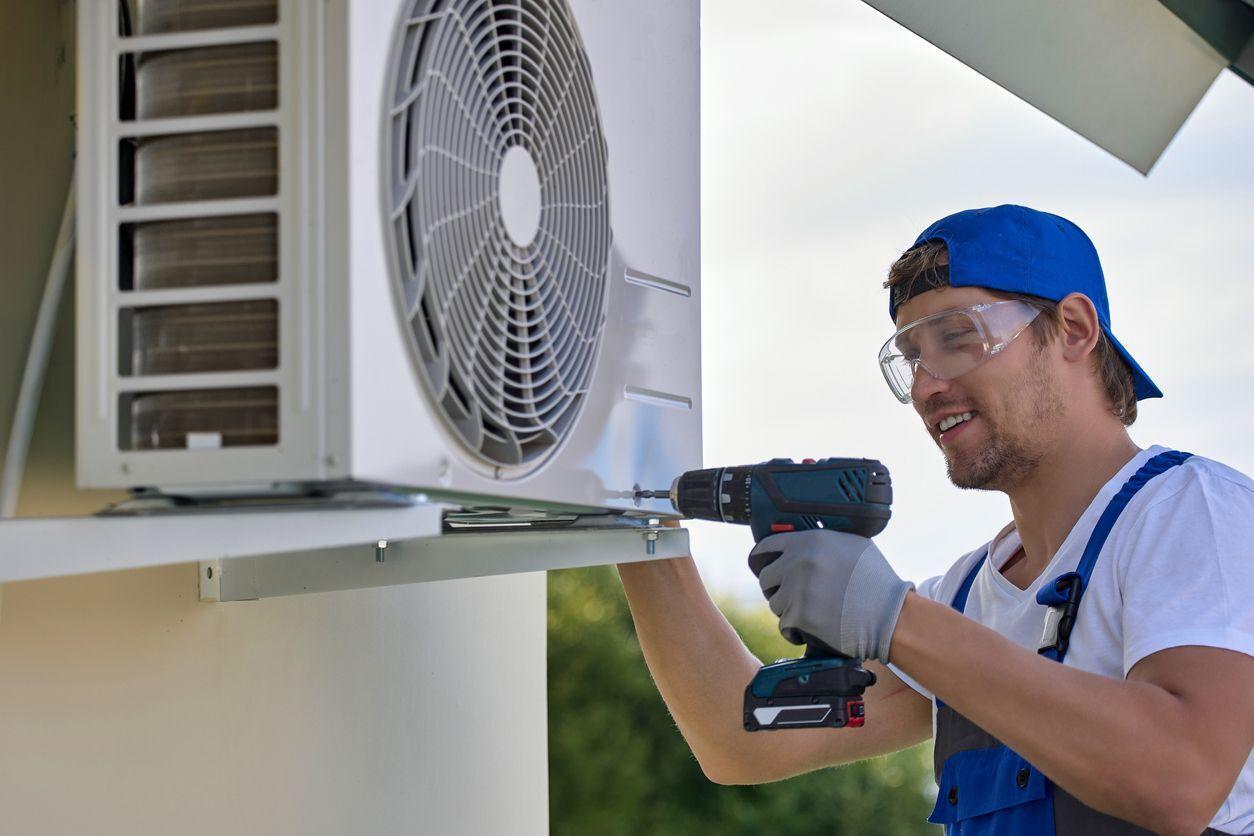When your air conditioner suddenly stops working on a sweltering Houston summer day, the last thing you want is sticker shock from repair costs. Yet, understanding AC repair pricing can feel like navigating a maze of technical jargon and varying quotes. The truth is, affordable AC repair doesn’t mean compromising on quality it means knowing what drives costs and how to identify fair, transparent pricing from reputable HVAC professionals.
In Houston’s demanding climate, where air conditioners run nearly year-round, repair costs can vary dramatically based on multiple factors. Whether you’re dealing with a simple capacitor replacement or a complex compressor issue, having realistic expectations about repair costs helps you budget effectively and avoid unnecessary expenses.
Understanding AC Repair Cost Factors
Several key elements influence what you’ll pay for AC repair services. The type and age of your system play significant roles older units often require harder-to-find parts, while newer models might need specialized diagnostic equipment. The specific problem also matters tremendously. A refrigerant leak requires different expertise and materials than electrical issues or mechanical failures.

Labor costs constitute a substantial portion of your repair bill. Licensed HVAC technicians undergo extensive training and certification, justifying their professional rates. In Houston, hourly rates typically range from $75 to $150, depending on the company’s experience level and service quality. Emergency repairs outside normal business hours often carry premium rates, sometimes 1.5 to 2 times standard pricing.
The complexity of accessing your AC unit affects pricing too. Rooftop units or systems in tight crawl spaces require more time and effort, increasing labor costs. Additionally, the season impacts pricing peak summer months often see higher demand and potentially longer wait times, though reputable companies maintain consistent pricing year-round.
Geographic Location and Market Dynamics
Regional factors significantly influence repair costs. In Houston’s competitive HVAC market, prices tend to be more reasonable than in smaller markets with fewer service providers. The city’s high humidity and extended cooling season mean technicians here have extensive experience with common AC problems, often leading to faster, more efficient repairs.
Local regulations and permit requirements also factor into costs. While simple repairs rarely need permits, major component replacements might require inspection, adding $50 to $200 to your total bill. Professional companies handle permit processes seamlessly, ensuring compliance without delays.
Common AC Repairs and Their Price Ranges
Understanding typical repair costs helps you evaluate quotes and budget appropriately. Based on industry data and Houston market rates, here’s what homeowners commonly encounter:
Minor Repairs ($150 – $450)
- Capacitor replacement: $150-$350 – These components help start your AC motor and keep it running. They’re among the most common failures in Houston’s heat.
- Thermostat replacement: $150-$400 – Upgrading to a programmable or smart thermostat can improve efficiency while solving control issues.
- Contactor replacement: $150-$300 – This electrical component controls power flow to your AC unit.
- Circuit breaker replacement: $200-$350 – Essential for protecting your system from electrical damage.
- Condensate drain cleaning: $150-$250 – Prevents water damage and maintains proper humidity control.
Moderate Repairs ($450 – $1,200)
- Fan motor replacement: $450-$700 – Critical for air circulation and heat dissipation.
- Refrigerant leak repair and recharge: $550-$1,200 – Costs vary based on leak location and refrigerant type.
- Compressor capacitor and hard start kit: $500-$800 – Helps aging compressors start more easily.
- Control board replacement: $600-$1,000 – The brain of your AC system, controlling all operations.
- Evaporator coil cleaning: $450-$750 – Restores efficiency and improves air quality.
Major Repairs ($1,200 – $3,500+)
- Compressor replacement: $1,500-$2,800 – The heart of your AC system and most expensive single component.
- Evaporator coil replacement: $1,200-$2,500 – Often more cost-effective to replace the entire unit if over 10 years old.
- Condenser coil replacement: $1,300-$2,700 – Major component that releases heat outside your home.
- Complete refrigerant conversion: $2,000-$3,500 – Required when upgrading older R-22 systems to modern refrigerants.

How to Identify Quality Yet Affordable AC Repair Services
Finding affordable AC repair without sacrificing quality requires knowing what to look for in a service provider. Legitimate companies provide detailed, written estimates before starting work. They explain the problem clearly, outline necessary repairs, and break down costs transparently. Be wary of vague estimates or pressure tactics pushing immediate decisions.
Professional certifications matter significantly. Look for NATE (North American Technician Excellence) certified technicians, proper state licensing, and adequate insurance coverage. These credentials indicate serious investment in training and professionalism, often correlating with more accurate diagnostics and lasting repairs.
According to the Air Conditioning Contractors of America (ACCA), properly trained technicians complete repairs correctly the first time 94% more often than uncertified workers. This expertise translates to long-term savings despite potentially higher hourly rates.
Red Flags to Avoid
Exceptionally low quotes often signal corners being cut or bait-and-switch tactics. Companies offering repairs at 50% below market rates might use inferior parts, lack proper insurance, or add hidden fees later. Similarly, avoid technicians who diagnose problems without thorough inspection or immediately recommend full system replacement for minor issues.
High-pressure sales tactics suggesting immediate replacement without exploring repair options should raise concerns. Reputable companies like 75 Degree AC’s repair services provide honest assessments, explaining when repair makes sense versus replacement, considering factors like system age, efficiency, and long-term costs.
Smart Strategies for Reducing AC Repair Costs
Preventive maintenance represents the most effective strategy for minimizing repair expenses. Regular professional maintenance catches small issues before they become major problems. Studies show that maintained systems experience 95% fewer breakdowns and last 40% longer than neglected units.
Consider these cost-saving approaches:
- Schedule repairs during off-peak seasons (fall and spring) when demand is lower and technicians have more availability.
- Bundle multiple repairs when possible to reduce service call charges.
- Invest in a maintenance agreement offering priority service, discounted repairs, and regular tune-ups.
- Replace air filters monthly during peak season dirty filters cause numerous problems and reduce efficiency by up to 15%.
- Keep outdoor units clear of debris and vegetation, maintaining at least two feet of clearance.
- Address problems immediately minor issues quickly escalate into major repairs when ignored.
DIY vs. Professional Repairs
While some maintenance tasks suit DIY approaches, most AC repairs require professional expertise. Changing filters, cleaning debris from outdoor units, and checking thermostat batteries are safe homeowner tasks. However, anything involving refrigerant, electrical components, or system disassembly demands professional service for safety and warranty preservation.
Attempting complex repairs yourself risks personal injury, system damage, and voided warranties. The EPA requires certification for handling refrigerants, and improper electrical work poses fire hazards. Professional repairs include warranties protecting your investment.
When to Repair vs. Replace Your AC System
Sometimes, continuing repairs becomes less economical than replacement. The “50% rule” suggests considering replacement when repair costs exceed half the price of a new system. Additionally, systems over 10-15 years old often benefit from upgrade due to improved efficiency standards.

Modern air conditioners offer 30-50% better efficiency than units from 15 years ago. When factoring energy savings, tax credits, and avoiding frequent repairs, AC replacement sometimes provides better long-term value. A trustworthy contractor helps you evaluate this decision objectively.
| Factor | Favor Repair | Favor Replacement |
|---|---|---|
| System Age | Less than 10 years | Over 15 years |
| Repair Cost | Under $1,000 | Over 50% of replacement cost |
| Energy Bills | Reasonable and stable | Increasing significantly |
| Repair Frequency | First major repair | Multiple repairs annually |
| Refrigerant Type | R-410A or newer | R-22 (being phased out) |
Financing Options for AC Repairs
Unexpected AC repairs can strain budgets, but several financing options exist. Many HVAC companies offer payment plans or work with third-party lenders providing competitive rates. Some utility companies also offer rebates or low-interest loans for energy-efficient repairs and upgrades.
Home warranty plans might cover certain AC repairs, though coverage varies significantly. Review policy details carefully, understanding deductibles, coverage limits, and excluded items. Credit cards with promotional interest rates provide another option for managing repair costs over time.
The True Value of Professional AC Repair
Quality AC repair extends beyond fixing immediate problems it’s about ensuring long-term comfort, efficiency, and reliability. Professional technicians identify underlying issues contributing to failures, preventing recurring problems. They also optimize system performance, potentially reducing energy costs by 20-30%.
As one certified master technician explains, “Proper diagnosis is 80% of effective repair. Experienced technicians recognize patterns and subtle signs that indicate developing problems. This expertise saves homeowners money by addressing root causes, not just symptoms.”
Indoor air quality improvements represent another benefit of professional repair. Properly functioning AC systems filter allergens, control humidity, and maintain consistent temperatures throughout your home. These comfort and health benefits prove invaluable during Houston’s challenging climate conditions.
Conclusion: Balancing Affordability with Quality
Affordable AC repair doesn’t mean choosing the cheapest option available it means finding fair value from qualified professionals who stand behind their work. Understanding typical costs, recognizing quality service indicators, and maintaining your system properly creates the foundation for managing AC expenses effectively.
In Houston’s demanding climate, your air conditioner works harder than almost anywhere else in the country. Investing in quality repairs from certified professionals ensures reliable cooling when you need it most. Remember that today’s proper repair prevents tomorrow’s emergency breakdown, ultimately saving money while maintaining comfort.
When evaluating AC repair services, prioritize companies offering transparent pricing, professional certifications, and comprehensive warranties. These factors indicate a commitment to quality that translates into lasting repairs and genuine value for your investment.
Don’t let AC problems escalate into costly emergencies. Contact 75 Degree AC at (713) 598-2737 for honest, upfront pricing on all AC repairs. Our certified technicians provide detailed estimates before any work begins, ensuring you understand exactly what you’re paying for. Schedule your service call today and experience the difference professional, affordable AC repair makes.
Frequently Asked Questions
How much should I budget annually for AC repairs?
Financial experts recommend budgeting 1-3% of your home’s value annually for all maintenance and repairs, with $200-500 specifically allocated for potential AC issues. Homes with older systems should budget toward the higher end, while newer systems typically require less.
Are AC repair costs covered by homeowners insurance?
Standard homeowners insurance typically doesn’t cover AC repairs from normal wear and tear or maintenance issues. However, damage from covered perils like lightning strikes or vandalism might qualify. Review your policy specifics and consider home warranty plans for mechanical breakdown coverage.
What’s the most expensive AC repair?
Compressor replacement represents the most expensive single repair, typically costing $1,500-2,800 for parts and labor. When combined with other necessary updates like refrigerant conversion or coil replacement, costs can exceed $3,500, often making full system replacement more economical.
How long do AC repairs typically take?
Most common repairs complete within 2-4 hours, including diagnostic time. Simple fixes like capacitor replacements might take just 30 minutes, while complex repairs like evaporator coil replacement can require 4-8 hours. Reputable companies provide time estimates upfront.
Can I negotiate AC repair prices?
While reputable companies maintain consistent pricing, you can reduce costs by bundling multiple services, joining maintenance programs, or scheduling during off-peak seasons. Focus on value rather than just price quality repairs lasting years prove more economical than cheap fixes requiring frequent attention.
Should I get multiple repair quotes?
For non-emergency repairs exceeding $500, obtaining 2-3 quotes helps ensure fair pricing. However, compare more than just price consider warranties, company reputation, technician certifications, and included services. The lowest quote isn’t always the best value.
